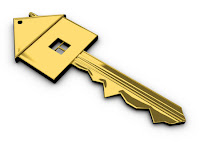Pick
up any national real estate news magazine and you’ll quickly notice that
Phoenix is being ranked one of the fastest growing areas in our nation in terms
of home appreciation. The news is great! Especially considering that our
marketplace was also one of the hardest hit back when the housing market
crashed in the 2007/2008 years and beyond.
So
what does this mean to us at ground level? It means that this could not be a
better time to sell. In fact, with the market conditions as they are nowadays,
it’s ripe with opportunity to yield top dollar on the sale of your home.
But
it’s not just as simple as pricing your home higher and hoping a buyer will
accept that higher price. A lot more goes into it. Here are three things that
my team and I do to make sure you are getting top dollar on your property.
Going the Extra
Mile on Research
Most
homeowners have no idea how their home’s value is estimated. In fact, many do
not realize that there are multiple ways a valuation can take place. One such
way is through a Comparative Market
Analysis.
Done by those in the real estate profession, a CMA is a report that highlights
recent past homes that have sold on the market; homes that are comparable to
yours. Now as you can imagine, this can be a very subjective report because
what one agent might find a reasonable comp, another might overlook.
That’s
why my deep research into your neighborhood, seeking as much of an exact
comparison as possible and putting on paper what I truly believe buyers out
there will pay for you home – will make all the difference. I take the time to
carefully study each aspect of your local and sub-local marketplace before presenting
the ideal price range, looking at other factors such as absorption rate and specific
details.
Exercising Strong
Negotiation Skills
When
it matters most, you need a strong player at bat for you. And these days, with
buyers still used to a buyer-controlled market and sellers starting to enjoy
multiple offers on their properties – a lot comes down to negotiation.
There
is no reason that you should be shortchanged on higher returns for your
property’s sale because an agent does not have enough property know-how. I
bring strong negotiating skills to the table and I support them with the
industry knowledge needed to back up my stance for a higher price.
Follow-Through, Not
Just Follow-Up
There
is a significant difference between following up with a transaction versus
following through. This is particularly important during the appraisal process.
When an appraisal is being done, I make it a priority to make sure the
appraiser knows everything he or she needs to know before evaluating the
property. If we can get our hands on blueprints, share information about any
upgrades done on the home or anything else that would be useful – we do it.
~
A
lot more goes into effectively selling a house and I assure you that we do our
best to make sure you get that well-deserved top dollar when we sell your home.
I invite you to contact me today to learn more so we can begin making your real
estate dreams become a reality!


